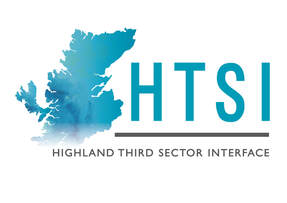Why it is Important
The committee (or board of directors if the group is incorporated) has a joint responsibility to ensure that the group remains solvent, that the bills are paid, that all legal requirements (including grant conditions) are met. Having someone on the committee or board who has financial (or accounting) experience can help, but ultimately the committee as a whole will need to be aware of their financial duties and responsibilities.
Financial management is not just about cash handling. It includes keeping day to day cash records, managing the group’s bank account(s) and ensuring that all legal requirements relating to finance are complied with. It includes setting budgets, monitoring and reporting on income and expenditure and preparing Annual Accounts.
The key to financial reports is not what they look like but what they are for – they are financial information that helps managers and trustees:
The committee (or board of directors if the group is incorporated) has a joint responsibility to ensure that the group remains solvent, that the bills are paid, that all legal requirements (including grant conditions) are met. Having someone on the committee or board who has financial (or accounting) experience can help, but ultimately the committee as a whole will need to be aware of their financial duties and responsibilities.
Financial management is not just about cash handling. It includes keeping day to day cash records, managing the group’s bank account(s) and ensuring that all legal requirements relating to finance are complied with. It includes setting budgets, monitoring and reporting on income and expenditure and preparing Annual Accounts.
The key to financial reports is not what they look like but what they are for – they are financial information that helps managers and trustees:
- Monitor progress and performance
- Make effective decisions
- Plan for the future
Key points
- Good management accounts should:
- be accurate and up to date
- be presented clearly – less is more, put the detail in the appendices
- tell a story – this is at least as important as numbers
- You can experiment with graphics - but think about the trade-off between the quality and time you take to produce the report
- You should know what you want from your reader: decisions, advice, approval – it’s much easier as a reader to know why you are reading something
- Too often management accounts are presented as a page of numbers looking backwards at what’s happened so far in the year. They need to be much more than this. There needs to be analysis of why things have happened, and what the significance is for future developments, as well as a forecast of what’s coming up financially (What? So What? Now What?).
- Focus on relevant information
- Think about the purpose of your management accounts, and the preferences, skills and needs of your users (you don’t need a one size fits all, you can adapt what you produce for different groups).
- While it’s right to check with people what they want to know about and what format they’d like it in – be aware that they might not know until you produce something, and that might make them realise that they wanted something just a little bit different after all. Be patient – think lean and agile.
- As a starting point, management accounts often cover:
- summary/highlights
- comparison of actual income and expenditure to date against budget
- forecast income and expenditure to year end compared with budget
- updated cashflow forecast
- details of movements on restricted funds
- They often also include a balance sheet, or some details of assets and liabilities like cash and significant debtors and creditors.
Links for more information
NCVO, National Council for Voluntary Organisations
Overview of what to include in management accounts.
https://knowhow.ncvo.org.uk/organisation/financial-management/reporting/management-accounts
SCVO, Scottish Council for Voluntary Organisations
Overview of accounting and reporting
https://scvo.org.uk/support/running-your-organisation/finance-business-management/charity-accounts-financial-reporting
CVS Falkirk
Template documentation in relation to financial management.
https://www.cvsfalkirk.org.uk/resource-library-organisation-support/
NCVO, National Council for Voluntary Organisations
Overview of what to include in management accounts.
https://knowhow.ncvo.org.uk/organisation/financial-management/reporting/management-accounts
SCVO, Scottish Council for Voluntary Organisations
Overview of accounting and reporting
https://scvo.org.uk/support/running-your-organisation/finance-business-management/charity-accounts-financial-reporting
CVS Falkirk
Template documentation in relation to financial management.
https://www.cvsfalkirk.org.uk/resource-library-organisation-support/

